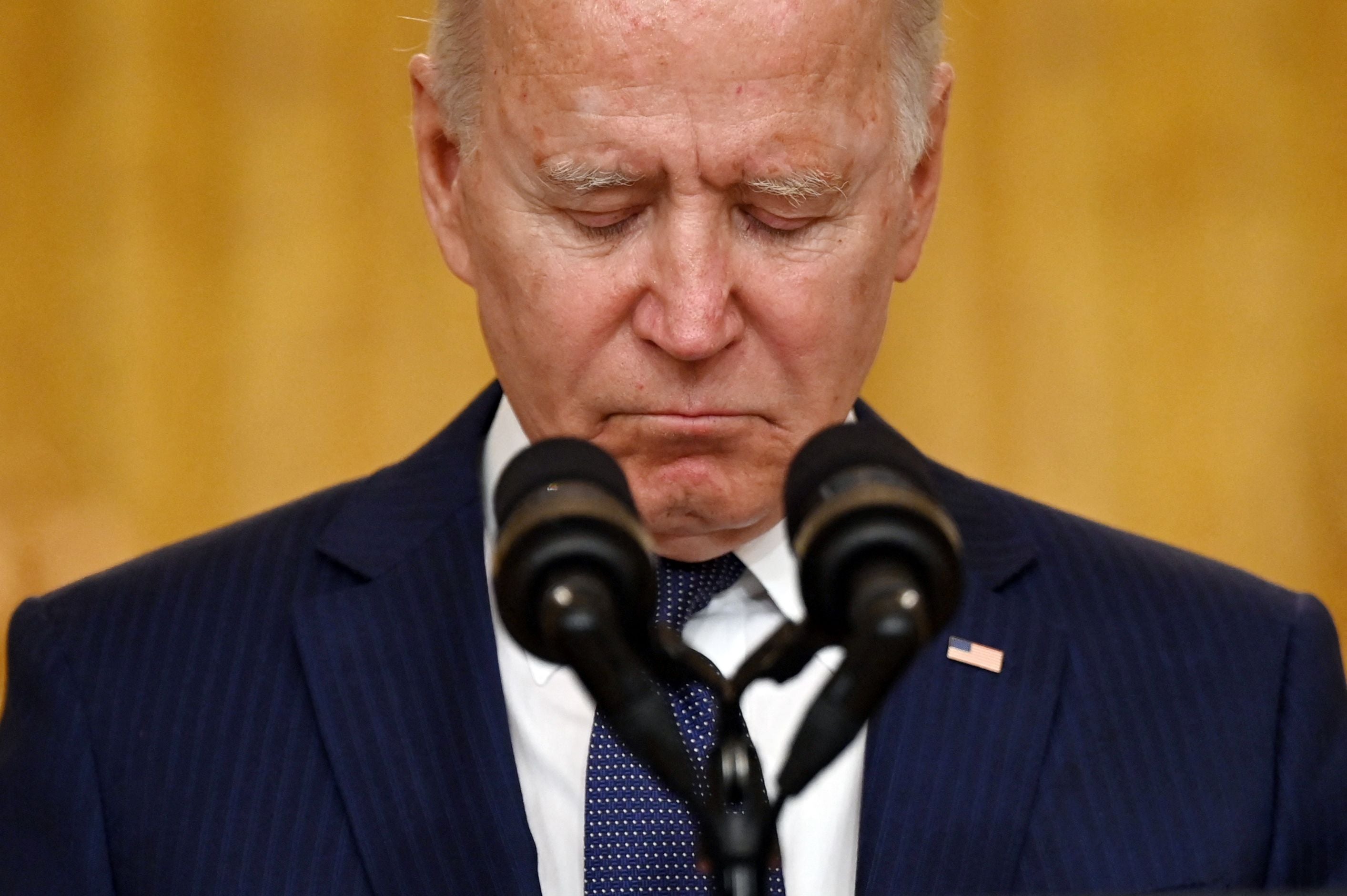What the pullout from Afghanistan means for the US-UK relationship
Joe Biden’s failure to consult allies including the UK before the retreat from Kabul came as a shock to British diplomacy, writes John Rentoul


The importance of the US-UK relationship was an “article of faith” for him, Tony Blair declared in the build-up to the invasion of Iraq. It counted for something, too, even if the end result for Blair was his part in a career-shortening war.
Blair’s immediate response to the 9/11 attacks on the US, promising to stand “shoulder to shoulder” with our ally, and making a case for the collective global response that the inarticulate George W Bush could not, earned him a great deal of credit in the White House.
Despite Blair’s critics deriding him as Bush’s poodle, he secured significant influence over US policy, persuading Bush to do things he would not otherwise have done.
President Bush agreed to take the US case against Iraq to the UN, overruling those in his administration, including vice-president Dick Cheney, who thought it a waste of time and an infringement on the US’s freedom of action. Blair also persuaded Bush to publish the US plan for a Middle East peace settlement between the Israelis and Palestinians. Neither effort came to anything, but there was no question that the British influence was real.
The US and the UK have started to resemble former colleagues who meet at the same round of functions and say they must have a cup of coffee but never do
That influence depended on the personality of Blair himself, although it was built on a history of defence and intelligence cooperation, and his successors often seemed to struggle to gain a hearing at the White House. British influence on US foreign policy continued under Barack Obama, but despite David Cameron rather than because of him. President Obama abandoned plans to launch punitive strikes against Assad’s regime in Syria after the British House of Commons voted against them in 2013.
The US and the UK acted together in withdrawing their troops from Iraq in 2011, although, unlike in Afghanistan a decade later, they left behind a government that more or less functioned – until the advance of Isis prompted US forces to return in 2014, this time with air support only from the UK.
Since then, the US and the UK have been like former colleagues who meet at the same round of functions and say they must have a cup of coffee but never do. Donald Trump was interested in the UK only because the Brexit campaign seemed to be a tribute to him, and his only interest in Theresa May was in lecturing her on how to handle the negotiations with the EU (“sue them”).
The British diplomatic machine heaved a sigh of relief when Joe Biden was elected, because he was their kind of American, steeped in foreign policy and a decades-long player who had often tended to the British view. He forcefully supported the UK in the Falklands, for example, as Ronald Reagan equivocated (despite his close personal relationship with Margaret Thatcher), and was a muscular advocate of humanitarian military intervention in the Balkans when Bill Clinton equivocated (before he was persuaded by Tony Blair).
British diplomats assumed that the promise to “end forever wars” in Biden’s platform was just the sort of thing US politicians say to get elected. There is usually isolationist and protectionist rhetoric in presidential candidates’ platforms, and not all of it ends up as policy – even Trump, though he imposed some protectionist tariffs, failed to bring US troops back from Afghanistan, which he and Obama had both promised to do.
But the British government failed to appreciate the significance of the deal that Trump had signed with the Taliban in February 2020, and how hard it would be for Biden to reverse that course. Biden’s argument was that Trump’s deal had bought a temporary peace, but that maintaining a US force in Afghanistan against a hostile Taliban would have required a new surge of 30,000 troops, which US public opinion would not have tolerated.
Biden’s failure to consult allies before confirming the final stage of the pullout reminded the UK of the underlying reality of the US-UK alliance: that Americans are often sentimental about “England”, but that the relationship is mostly about what each side can get out of it, and that – when it comes down to it – they are just not that into us.
Join our commenting forum
Join thought-provoking conversations, follow other Independent readers and see their replies
Comments
Bookmark popover
Removed from bookmarks